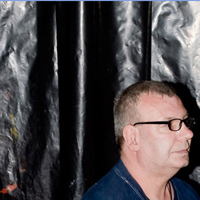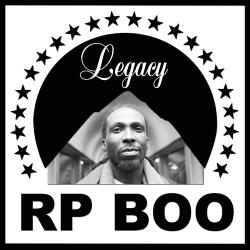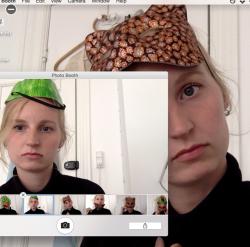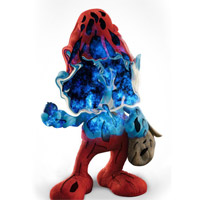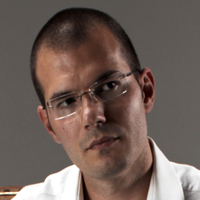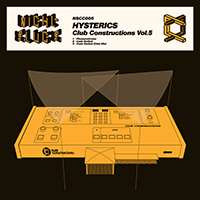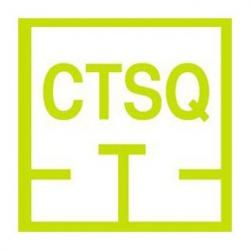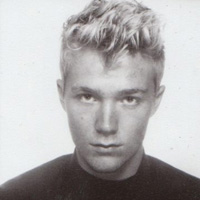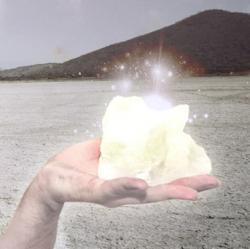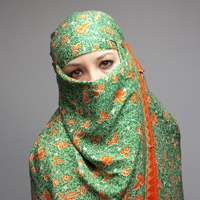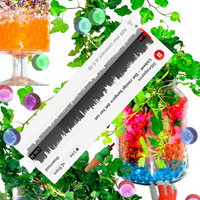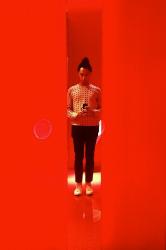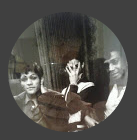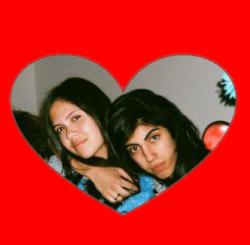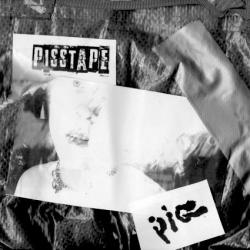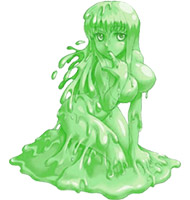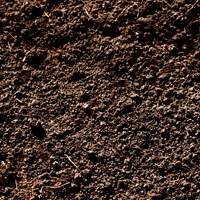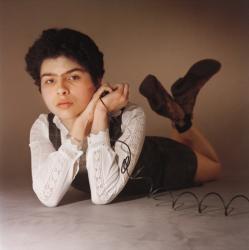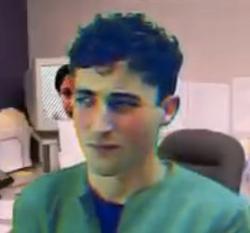Mommy | Maggie Lee
July 20, 2012 — Maggie Lee tagged you in a photo.
I remember receiving the notification on Facebook. I was on my way to see The Dark Knight Rises—it was it’s opening day—but the photo brought me back to the night before. Maggie’s caption above the photo on my timeline read: “finger snap, half man half woman, steven king or ann rice?, 2 step (in the back), simple times, park angel thong reptilian skirt, ghost ride on keaton sick sense.”
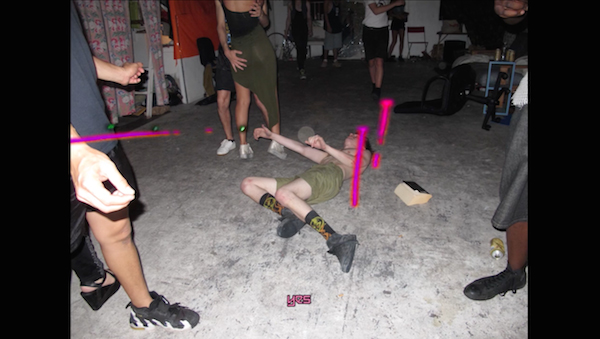
Maggie Lee, Mommy, 2015. Film still.
There’s a lot I remember from the parties at Steuben Street, and probably more that I don’t. When I look at Maggie’s photo, it comes flooding back, but it’s through her own interpretation that I truly relive the moment. She pinpoints everything so evocatively. From the emotions we felt to the trash on the ground, it reminds you why we take pictures of the things we choose to take pictures of, and why we record video just as often as we don’t record video. There’s nothing random about a book that may or may not be an Ann Rice novel. Behind it, at the very least, is someone who’s read it, their memories of reading it, and of course, its cultural implications.
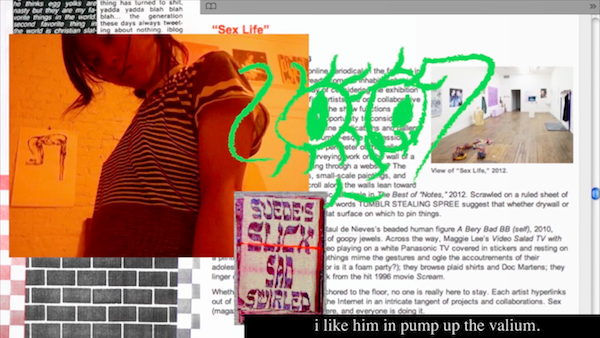
Maggie Lee, Mommy, 2015. Film still.
The photo of me and a scrapbook’s worth of others from the same night find their way into Chapter 8 of Maggie’s new film Mommy. The chapter, titled LIFE AND WORK N.Y.C., takes us through Maggie’s early-twenties professional and social development: Vice, Younger Than Jesus, Sex Magazine. The chapter ends at Steuben Street. “He’s so hot, everyone is being cute. Parties are important,” she observes as if walking through one of her yearbooks from an earlier chapter in the film. Jeff’s reclining on the hood of an SUV, sliding off, Alex’s wrapping something around his bloody hand, and I’m possessed on the pavement, donning Hunger Games socks but no shirt. Akeem’s on the ground, too, in another picture. “The fire department came, the fire department’s gone,” she continues to narrate, positioning herself as both an observer from the present and the past. Suddenly it’s six in the morning.
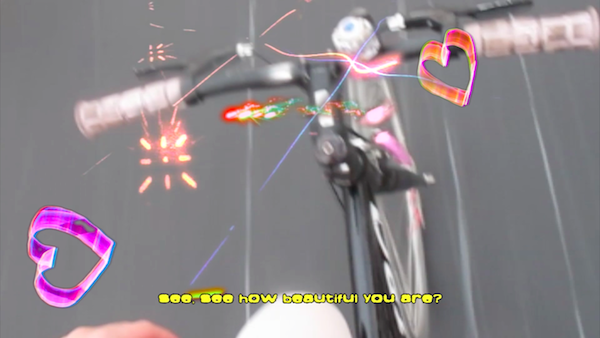
Maggie Lee, Mommy, 2015. Film still.
Rewind midway through the party scene, a phone conversation fades in. The audio becomes clearer as the night on screen progresses, as if Maggie answered the phone on the dance floor by the speakers and hurried outside, further and further away from the party, away from the noise. The phone call’s from her mother—worried, concerned, loving. “Just do something the best you can.” Her mother finishes the conversation. The phone call woven through the party represents a journey Maggie repeatedly makes throughout the film—from family to friends, past to present, professionalism to play, suburbs to the city, and most frequently, between her mother and herself.
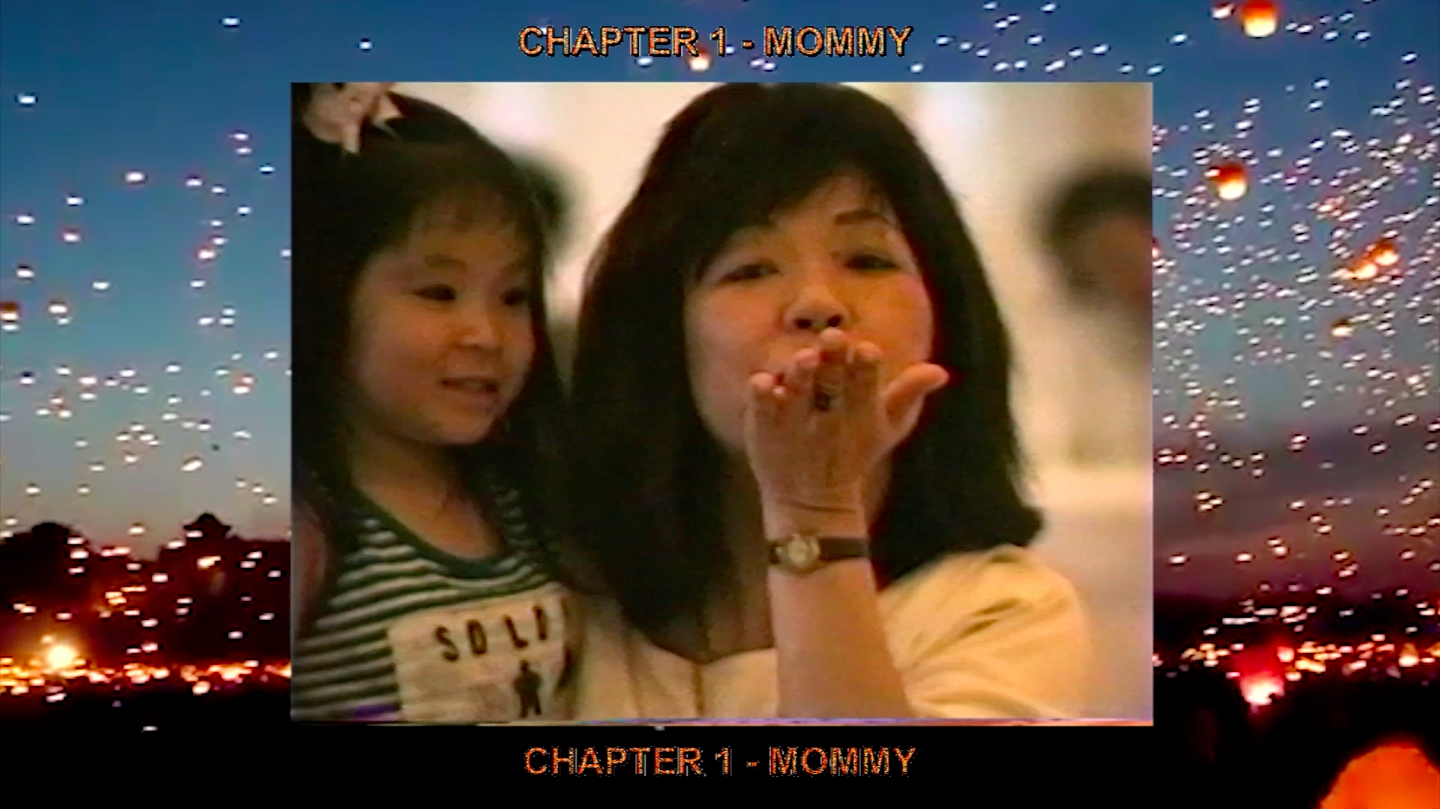
Maggie Lee, Mommy, 2015. Film still.
We meet Ping, Maggie’s mother, in the first chapter. We learn of her immigration from Taiwan to New Jersey, of her family, of her unfinished, ghostwritten autobiography to which Mommy serves as both a reimagining and a love letter. In the second, we meet Maggie, who immediately lays out her astrological makeup: Leo Sun, Pisces Moon, Capricorn Rising. In contrast, Ping’s an Aries. Furthermore, the film itself is a Scorpio Sun, Virgo Moon and Gemini Rising, given its Los Angeles premiere on November 5, 2015 at 7:00 PM. It was a packed house at Ooga Twooga that included Maggie and the film’s producers Asher Penn and Air Pop of Beta Pictures. Somewhere nearby, probably at the Grove or the Americana, Spectre, the 24th James Bond movie, simultaneously met its first audience. Two movies gone rogue in the night, set out to decipher video messages from the past. “Your emotions and your will are at peace with one another,” Cafe Astrology says of a Scorpio Sun / Virgo Moon combo, and Gemini Rising’s are “interested in moving about in their social circles, love to ask questions, to move around freely, to mingle”.
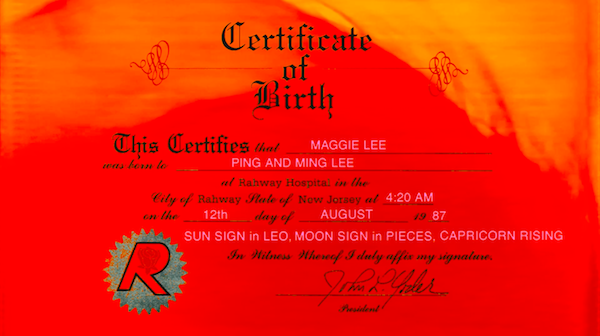
Maggie Lee, Mommy, 2015. Film still.
Mommy seeks to make peace between emotion and will, and certainly does its share of mingling to find it. From the motion graphics to the raw footage, Maggie’s archive is the kind that surpasses photo and video documentation. Though it’s evident that she attempts to capture as much as she can, there are other cultural and empirical elements that seep in immaterially (again, not the Ann Rice novel, but the memories you might associate with reading it). In Maggie’s archive, The Matrix isn’t a movie, it’s your first date, with at least one out of its two and a half hours set aside for making out with your boyfriend. Later on when you eat a Swedish Fish, you don’t taste a Swedish Fish. You taste his mouth. The physically absent black and purple Tamagotchi is as present as anything we see on screen. And it’s not a Whitehouse compilation from Piratesbay, it’s the last day you’ll use your Macbook. Memories and emotions are constantly taking different forms, often pop cultural ones. “Are you afraid of the dark?” Maggie asks in the chapter titled SCARED. Familiar with Maggie’s treatment of references, we at once hear it as a dire question to her audience and a fragmented recollection of a TV show from her childhood—seemingly adrift from its place in her head, but in actuality, exactly where it needs to be.

Maggie Lee, Mommy, 2015. Film still.
That’s how Maggie makes her journey: rearranging and repurposing pieces of her past — the material and immaterial, the cultural and personal. There’s a constant awareness of the paradox of disposability, for instance, the watermelon seeds her mother tossed out the kitchen window that grew into enough watermelons to feed the neighborhood, or the new garbage can that her mother purchased but never used. When Maggie rediscovers it in the garage years later, after the loss of her mother, she describes it as no longer new but still perfect. It has all her toys inside it.
I go to my Facebook page, browse through photos of myself until I find Maggie’s from the Steuben Street party. It’s still there. 10 likes, 3 comments. Older now but still perfect. “Take a picture and throw it away, take a picture and it’ll last longer.”

Maggie Lee, Mommy, 2015. Film still.
Our lives are divided into an infinity of vessels, kind of the way a soul is divided between different physical objects when a wizard makes a horcrux. But unlike an evil horcrux, it’s not about the assurance of immortality. It’s about recognizing your own story isn’t just yours. Its components belong anywhere and to anyone. They belong to your daughter. They belong to your husband, and your friends. They belong to your sisters and the shoes you shared with them. They belong to your toys. To fishcake swirls. To the movies you’ve seen, and the movies you haven’t. To the torrents that became mp3’s and those that crashed your MacBook. To the Chinese lantern plants that never cease to bloom.
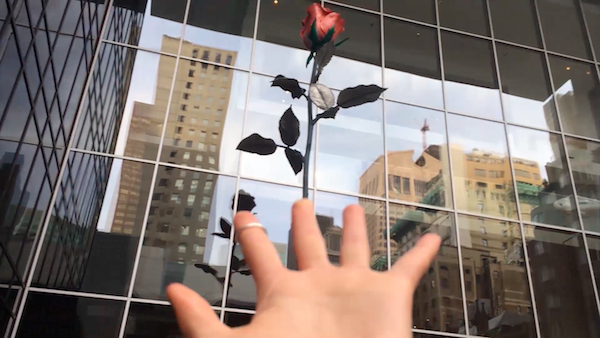
Maggie Lee, Mommy, 2015. Film still.
It’s possible that through tragedy those vessels might recede, that your relationship to them blurs, but with Mommy, it seems that their purpose has become clear again.
Mommy is available here to buy and rent.






